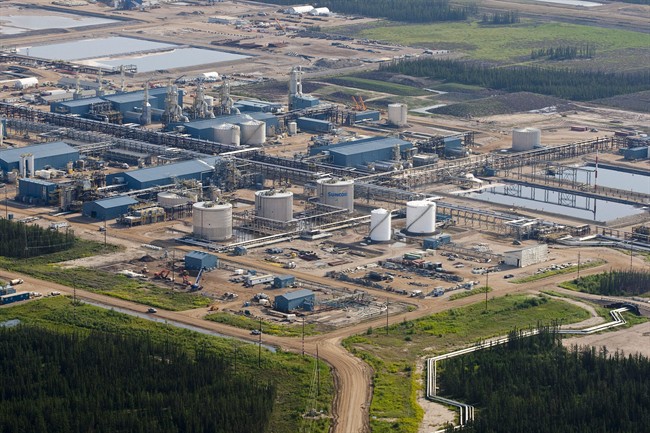Rebounding oil prices will help make Alberta the fastest-growing economy in Canada, the Conference Board of Canada said in a report released today.

The province’s real GDP is forecast to expand by 2.8 per cent this year, topping robust growth across most of Canada. But strong growth isn’t expected to produce many new jobs for Albertans.
Similarly, across the country, economic expansion won’t necessarily translate into employment and wage gains.
All provinces expected to grow, except for Newfoundland and Labrador
Ontario is also expected to post solid growth, with GDP expanding 2 per cent this year. British Columbia will grow at 1.9 per cent, a respectable pace even though it represents a significant drop from average growth above 3 per cent for the last three years, the Conference Board said.
READ MORE: Canadians moving to Ontario contributing to Toronto’s housing crunch
Quebec will also shine, with growth expected to average 1.9 per cent in both 2017 and 2018 driven by consumer spending and job creation.
In the west, oil prices are also lifting Saskatchewan, which will return to positive growth, with GDP expanding 0.9 per cent, the report said. Manitoba will continue to advance at a healthy 1.9 per cent clip.
READ MORE: Canada’s economy will grow more than most G7 countries due to Donald Trump: IMF
Newfoundland and Labrador is the only province expected to buck the trend, with the economy shrinking 1.8 per cent in 2017, amid a 57 per cent collapse in investment that will help push the unemployment rate to a steep 15.5 per cent.
WATCH: Comparing BC’s budget surplus to Alberta’s multi-billion dollar deficit

In the rest of Atlantic Canada, New Brunswick is forecast to grow at 1.2 per cent, despite the uncertainty around the softwood lumber dispute with the U.S. Nova Scotia is poised to record a modest expansion of 0.8 per cent, as business investment loses momentum due to the wrap-up of the Maritime Link Transmission Project. Prince Edward Island remains the brightest spot in the region, with GDP growth of 2.2 per cent underpinned by strong tourism and manufacturing activity.
Generally rosy economic landscape hides a mixed picture for jobs and wages
Though most provincial economies are expected to chug along nicely this year, jobs and wage growth prospects for Canadians across the country are more mixed.
Alberta’s chart-topping performance, for example, isn’t expected to produce many jobs. The strong rate of growth reflects a rebound from “rock bottom,” according to the report, and a temporary boost from reconstruction efforts in Fort McMurray. It will take time for healthier business activity to translate into jobs and higher consumer spending.
WATCH: State of Alberta: The Alberta Jobs Plan

Saskatchewan’s newfound growth will also fail to yield perceptible gains in jobs and wages.
“The province’s consumers will barely notice the recovery this year,” the report predicted.
Where the economic recovery is translating into more jobs and better pay is Atlantic Canada. In both Nova Scotia and New Brunswick, the labour market is finally coming out of the deep freeze of the last five years. In Nova Scotia, which shed more than 10,000 jobs over the last five years, “employment could make a significant gain this year for the first time since 2012,” said the Conference Board.
Still, the economic bust continues to ravage Newfoundland. Here households are being squeezed between job losses and higher taxes, the Conference board noted. However, oil production at the Hebron offshore oil project could drive a sharp turnaround in 2018, with the economy growing as much as 4.4 per cent next year.
WATCH: Newfoundland and Labrador 2016 budget full of painful measures

Ontario, meanwhile, touts Canada’s strongest labour market, which has recently turned the province into a magnet for interprovincial migration. British Columbia is also doing well. Despite a drop of nearly 40 per cent in Vancouver’s home sales, the province is poised to see employment growth of 1.2 per cent this year.
- Calgary fatal stabbing victim ‘gave himself’ to help those fleeing war in Ukraine
- Alberta introduces legislation to reduce high power-bill fee surcharge for Calgarians
- Innovative nursing education: Mannequins lead the way in Alberta
- Calgary police looking for suspect in March southeast hotel homicide




Comments